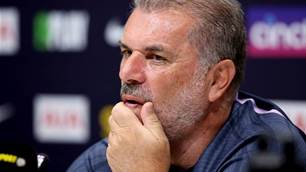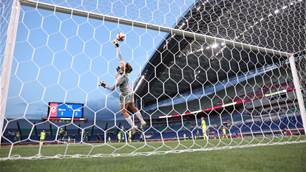Liverpool's accountants have warned there could be "significant doubt" over the future of the club's parent company as it struggles to refinance £350million in debt.
The group owned by Tom Hicks and George Gillett suffered a loss of £42.6 million last year, mainly due to interest payments on the debts the Americans took on to buy the club.
In the annual accounts released last night, Liverpool's accountants warned the group is struggling to refinance debts before a deadline of July 24, and the problems "may cast significant doubt on the group's and parent company's ability to continue as a going concern".
Although Hicks and Gillett say they are confident of securing a refinancing deal, the figures reveal that the financial success of the football club is being swallowed up by the cost of servicing the parent company's loans.
The accounts for the year ending July 2008 showed Liverpool made a £10.2million profit but the parent company Kop Football (Holdings) Ltd made a substantial loss of £42.6million, mainly due to interest payments totalling £36.5million.
The clubs accountants KPMG LLP also expressed a warning in their notes in the filed accounts.
The accountants said: "The group has credit facilities amounting to £350million which expire on 24 July 2009. The directors have initiated negotiations to secure the replacement finance required by the group and these negotiations are ongoing.
"These conditions... indicate the existence of a material uncertainty which may cast significant doubt on the group's and parent company's ability to continue as a going concern."
The club's turnover was a record £159.1million compared to £133.9million the year before, with a profit of £10.2million.
That was reflected by a similar turnover for Kop Football (Holdings) of £164million - most coming from the football club - but the overall loss of £42.6million.
Hicks and Gillett have been scouring the globe to find investors keen on putting money into the club but so far without success.
It is not Hicks' only problem - he has said he is prepared to sell a majority shareholding in his Texas Rangers baseball team after the Hicks Sports Group in April defaulted on £325million (525million US dollars) in loans relating to that team and his Dallas Stars ice hockey side.
Sean Hamil, a lecturer at the University of London's Birkbeck Sport Business Centre, told Bloomberg: "Any company, never mind a sports company, which is not able to cover interest from operating activities has three options: refinance, get new equity investors, or sell it to somebody else who's prepared to absorb the debt and start from scratch."
In the annual accounts released last night, Liverpool's accountants warned the group is struggling to refinance debts before a deadline of July 24, and the problems "may cast significant doubt on the group's and parent company's ability to continue as a going concern".
Although Hicks and Gillett say they are confident of securing a refinancing deal, the figures reveal that the financial success of the football club is being swallowed up by the cost of servicing the parent company's loans.
The accounts for the year ending July 2008 showed Liverpool made a £10.2million profit but the parent company Kop Football (Holdings) Ltd made a substantial loss of £42.6million, mainly due to interest payments totalling £36.5million.
The clubs accountants KPMG LLP also expressed a warning in their notes in the filed accounts.
The accountants said: "The group has credit facilities amounting to £350million which expire on 24 July 2009. The directors have initiated negotiations to secure the replacement finance required by the group and these negotiations are ongoing.
"These conditions... indicate the existence of a material uncertainty which may cast significant doubt on the group's and parent company's ability to continue as a going concern."
The club's turnover was a record £159.1million compared to £133.9million the year before, with a profit of £10.2million.
That was reflected by a similar turnover for Kop Football (Holdings) of £164million - most coming from the football club - but the overall loss of £42.6million.
Hicks and Gillett have been scouring the globe to find investors keen on putting money into the club but so far without success.
It is not Hicks' only problem - he has said he is prepared to sell a majority shareholding in his Texas Rangers baseball team after the Hicks Sports Group in April defaulted on £325million (525million US dollars) in loans relating to that team and his Dallas Stars ice hockey side.
Sean Hamil, a lecturer at the University of London's Birkbeck Sport Business Centre, told Bloomberg: "Any company, never mind a sports company, which is not able to cover interest from operating activities has three options: refinance, get new equity investors, or sell it to somebody else who's prepared to absorb the debt and start from scratch."
Copyright (c) Press Association
Related Articles

Postecoglou looking to A-League to 'develop young talent'
.jpeg&h=172&w=306&c=1&s=1)
Big change set to give Socceroos star new lease on life in the EPL













